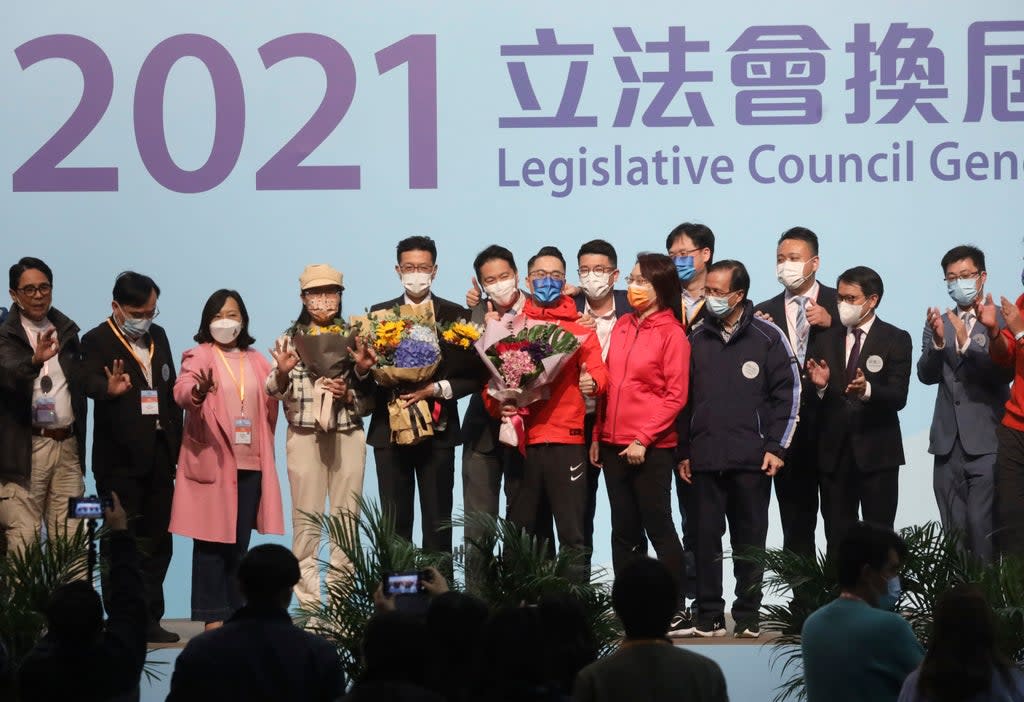China accuses western allies of ‘wantonly interfering’ in Hong Kong with election criticism

China has rejected criticism of Hong Kong’s legislative elections by the Five Eyes western alliance of the US, UK, Canada, Australia and New Zealand, and attacked it for “wantonly” interfering with Beijing’s internal affairs by “recklessly disregarding facts”.
In a statement issued on Tuesday, China’s embassy in Australia said it “firmly opposed and strongly condemned” the stand of the alliance. “Facts have once again proved that all attempts by certain countries to meddle in Hong Kong politics, interfere in China’s internal affairs and hinder China’s development are futile and doomed to fail,” the statement read.
The Five Eyes alliance had “recklessly disregarded the facts and reversed the truth, and wantonly interfered in China’s internal affairs by the so-called Hong Kong issue,” it added.
China’s response was to a statement issued by the Five Eyes alliance over the legislative council elections held in Hong Kong on Sunday, in which less than a third of the city showed up for voting.
More than 90 per cent of the seats in the election went to pro-Beijing candidates.
Taking the offensive, China criticised Australia for its diplomatic stances and accused the Five Eyes alliance member of having a “hypocritical nature”.
“In recent years, the Australia side has gone all out to hype up its opposition to so-called ‘foreign interference’, while in the meantime, constantly finding various excuses to violently interfere in China’s internal affairs, which fully reveals its hypocritical nature of ‘double standards’,” the statement read.
China also asked Australia to “reflect on itself and stop undermining the stability and development of other countries under any pretext”.
The alliance had said that “actions that undermine Hong Kong’s rights, freedoms and high degree of autonomy are threatening our shared wish to see Hong Kong succeed”.
China in turn claimed that the election was fair, adding that the democratic rights of voters were fully respected and protected.
“Hong Kong is China’s Hong Kong. The Chinese Central Government and the HKSAR [Hong Kong Special Administrative Region] Government know best how to secure the prosperity and stability of Hong Kong,” the statement said.
“Facts have once again proved that all attempts by certain countries to meddle in Hong Kong politics, interfere in China’s internal affairs and hinder China’s development are futile and doomed to fail,” it added.
The elections this year came after China made several changes to Hong Kong’s electoral system, including reducing by more than half the number of Legislative Council seats filled by public vote, and requiring that all candidates for these positions be vetted by Beijing.
This move in particular was attacked by the Five Eyes alliance for “eliminating any meaningful political opposition”.
“The overhaul of Hong Kong’s electoral system introduced earlier this year reduced the number of directly elected seats and established a new vetting process to severely restrict the choice of candidates on the ballot paper,” a joint statement by the countries had read.
“These changes eliminated any meaningful political opposition. Meanwhile, many of the city’s opposition politicians – most notably the majority of the ‘NSL 47’ [referring to the city’s main opposition politicians who have been jailed under the National Security Law or NSL] – remain in prison pending trial, with others in exile overseas.”
Political analysts and activists dubbed the exercise a sham because lawmakers critical of Beijing were not allowed to contest the elections.
The Five Eyes statement urged China to abide by its “international obligations” to regard protected rights and fundamental freedoms handed over to Hong Kong, including those passed on under the Sino-British Joint Declaration, signed in 1997 and applicable until 2050. It allowed citizens of the former British colony certain freedoms, such as voting rights, that are otherwise not enjoyed by citizens on the mainland.


